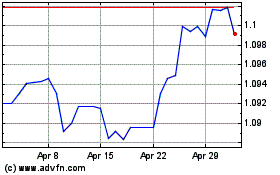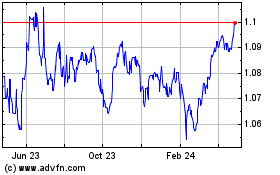Australia Inflation Rises In November
08 January 2025 - 10:36AM
RTTF2
Australia's consumer price inflation accelerated in November
largely due to the timing of electricity rebate, the Australian
Bureau of Statistics said on Wednesday. Headline inflation rose to
2.3 percent in November from 2.1 percent in October. Inflation was
slightly above economists' forecast of 2.2 percent.
However, annual trimmed mean inflation eased to 3.2 percent from
3.5 percent in October.
"Annual trimmed mean inflation remains higher than CPI inflation
as it removed large price falls for electricity and automotive
fuel," ABS head of prices statistics Michelle Marquardt said.
In some states and territories, households received two rebate
payments in October in lieu of not receiving a payment in July,
Marquardt said. From November, most households received one
payment. As a result, electricity prices decreased 21.5 percent in
November from a year ago, which was slower than the 35.6 percent
annual fall in October.
The Reserve Bank of Australia is unlikely to pay much heed to
the slight pickup in headline inflation, Capital Economics'
economist Abhijit Surya said.
With underlying price pressures showing clear signs of cooling,
there is a growing risk that the Bank will cut rates sooner than
May, the economist noted.
Another report from ABS showed that the number of job vacancies
increased for the first time since May 2022. Vacancies grew 4.2
percent in November from August. However, it was 10.3 percent lower
than in November 2023.
AUD vs NZD (FX:AUDNZD)
Forex Chart
From Dec 2024 to Jan 2025

AUD vs NZD (FX:AUDNZD)
Forex Chart
From Jan 2024 to Jan 2025
